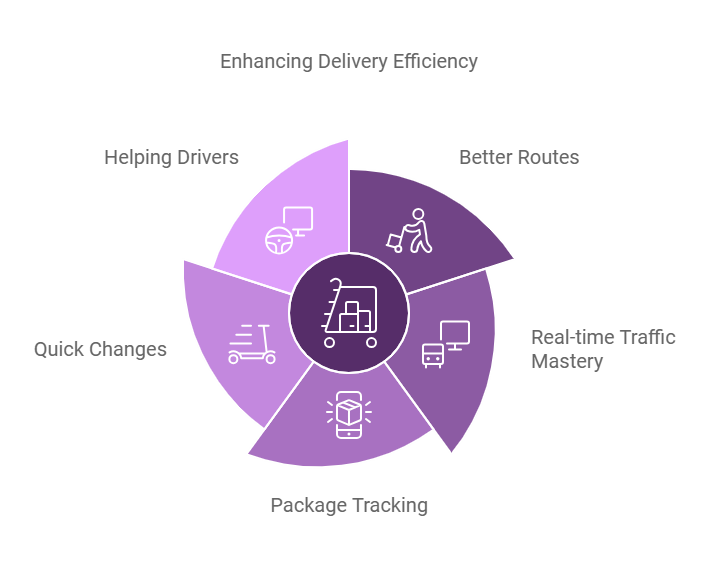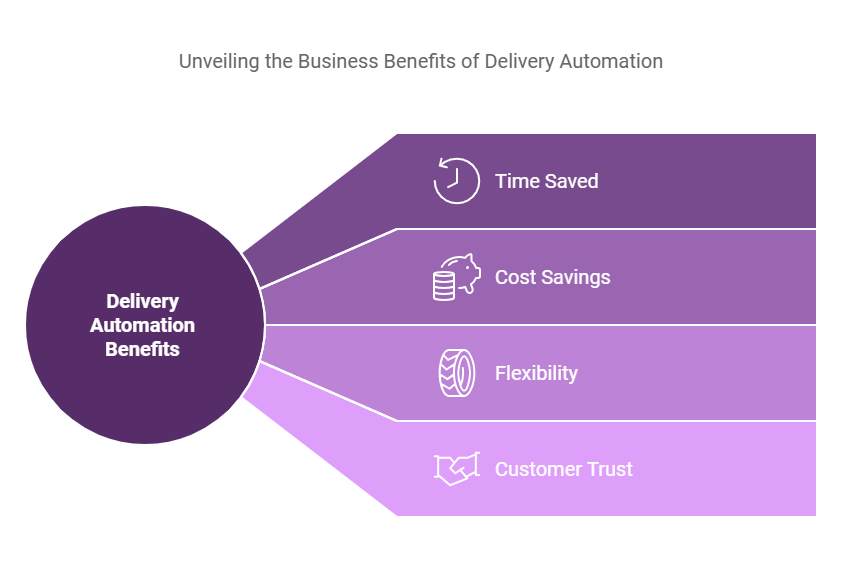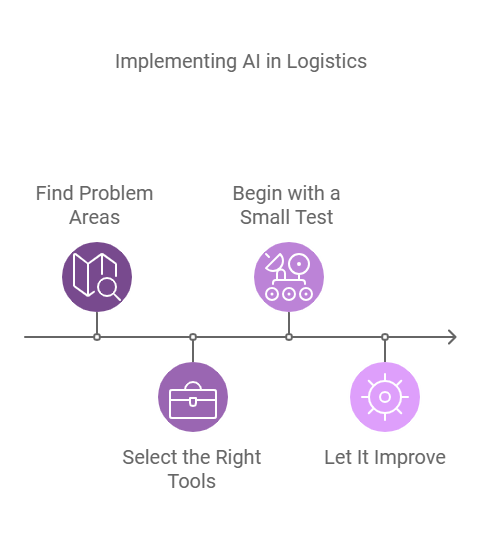The logistics industry has always been about solving problems by moving packages from one place to another as quickly and efficiently as possible. However, as more companies start using online shopping and customers want faster service, the problems have become much harder to solve. This is where AI and machine learning in logistics can help. These technologies are not just extra features; they are changing how companies manage deliveries, saving time, reducing costs, and making customers more satisfied.
Let's examine how AI and machine learning (ML) are improving route planning and delivery.
What is AI in Logistics?
At its core, AI in logistics is like having a very smart helper that can think and work much faster than humans. AI uses a lot of information like traffic conditions, delivery times, and customer addresses to make decisions quickly. For example, tools like Route4Me API integration can create delivery routes that avoid traffic, save fuel, and help drivers reach their destinations quickly.
How Machine Learning Improves Learning in Logistics?
Machine learning (ML) technology helps systems learn from previous experiences. For instance, the system will remember and adapt if a specific route often has traffic or a delivery spot is difficult to access. This makes the system smarter and more precise over time. It doesn't just follow set rules; it learns how to improve the delivery process at each stage.
Why Is This Important?
In logistics, time equals money. Every extra mile, delay, or poorly planned route increases expenses and decreases profits. However, using AI to manage deliveries can completely change this situation.
Here's why it's important:
Quicker Deliveries: AI finds the best routes to get packages to customers faster.
Reduced Costs: With its past route analysis, machine learning helps save money on fuel and labor by making routes more efficient.
Satisfied Customers: Faster and more reliable deliveries lead to happier customers who are more likely to shop again.
How does Delivery Automation Help?

AI isn't just about finding better ways to drive. It's part of a larger movement to make delivery work smoother through automation. Automation makes tasks like keeping track of packages and letting customers know about delays much simpler.
Here are some ways delivery automation works in real life:
Better Routes: Tools like Route4Me API help drivers skip extra stops and drive less.
Real-time Traffic Mastery: Real-time traffic updates help your deliveries avoid traffic jams. This leads to shorter delivery times.
Package Tracking: Customers can check where their package is on the move and safe, which makes them feel more secure.
Quick Changes: If something unexpected happens, like a closed road, AI quickly finds a new way.
Helping Drivers: Automated systems take care of details so drivers can focus on delivering packages without stress.
What is Smart Delivery Management?
Smart delivery management helps businesses manage their delivery process better. Here's how it works:
- A driver uses an app that shows the best route to follow.
- Customers receive updates about their package's arrival time, even down to the hour.
- The system automatically adjusts traffic or weather-associated delays.
This works using artificial intelligence, machine learning, and automatic delivery systems. The aim is to make the delivery process simple and worry-free for everyone.
The Benefits for Businesses

For businesses, the benefits of using AI and machine learning in logistics are clear:
Time Saved: AI tools reduce the time needed for route planning so drivers can concentrate on delivering goods.
Cost Savings: Lower fuel use, fewer delays, and better routes lead to significant savings.
Flexibility: These tools work for small delivery services and large international logistics companies.
Customer Trust: Fast and dependable deliveries create trust, encouraging customers to return.
Starting with AI in Logistics

Using AI and machine learning in logistics might seem like a big change, but it doesn't need to be difficult. Tools like Route4Me API integration are made to work easily with your current systems. They are simple to use and can be adjusted to match the size and needs of any logistics business.
Here's how companies can begin:
Find Problem Areas: Prepare a list of whether they are facing issues with route planning, late deliveries, or customer communication that need fixing.
Select the Right Tools: Choose AI-based solutions like Route4Me API that solve your particular problems.
Begin with a Small Test: Try the system on a smaller scale before using it across the company.
Let It Improve: The more deliveries the system manages, the better it becomes.
What's Next for Logistics?
The future of logistics will be smarter, more automated, and focused on customers. AI and machine learning (ML) are no longer just for big companies; they're now important for businesses of all sizes. As these technologies improve, we'll experience more customized deliveries, quicker service, and better efficiency.
But, the benefits of automation and smart technology in logistics extend beyond just delivery routes. AI is being utilized in a number of ways within this field - ALPR systems by developers like SentiVeillance automatically detect license plates helping contribute to better tracking of vehicles than previously possible.
For the logistical planning side, mobile solutions are a big part of this change, so it's important for businesses to outsource Android app developers to make good logistics apps. These apps can use AI tools to make operations smoother, keep track of deliveries, and give customers real-time updates, making the whole process easy and smooth.
If your business hasn't started using AI in logistics yet, it's time to start. These tools are no longer just optional—they're becoming essential for successful logistic operations. Working with the right technology experts, including a top-rated Android app development company, can help you create smart delivery management solutions that meet the needs of today's logistics industry.
AI and Machine Learning in Logistics: Revolutionizing Route Planning and Delivery